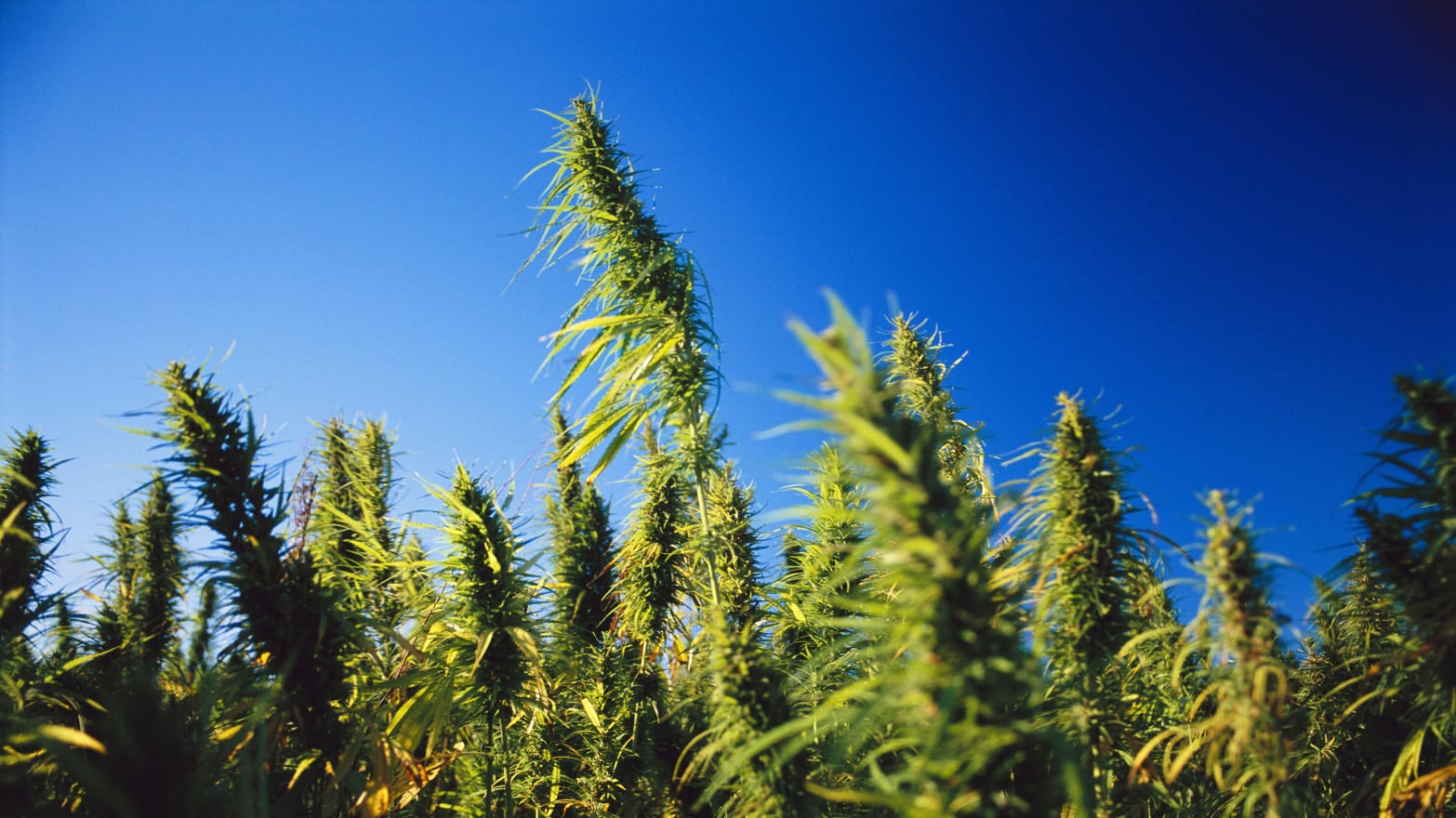Poor, poor, pitiful hemp.

Its cooler cannabis cousin, marijuana, gets all the buzz—generational bards from Bob Dylan to Snoop Dogg sing Mary Jane’s praise; cancer and AIDS patients declare her glory.
And even though smoking hemp won’t make you feel high—just really stupid for trying (as well as a sharp burning sensation in the lungs)—the feds still crack down on it because they think it kinda sorta looks like the wacky weed that threatens to send our nation back into reefer madness. Just another innocent casualty in the war on drugs.
In recent weeks, however, it appears that hemp might have the last (sober) laugh. That’s because a bipartisan, blue-grassroots effort to secure federal legalization of industrial hemp production might not only prove successful, it could also provide a model for solving far more pressing issues within our hyperpartisan, dysfunctional democracy.
To understand why the hemp movement is going mainstream, consider one of its strongest advocates: first-term Kentucky Agriculture Commissioner James Comer. The GOP official shocks the hemp stereotype. He’s neither the liberal hipster nor the bow-tied libertarian, each hoping the movement will bring us a step closer to legalized marijuana. Instead, the 40-year-old, rosy-cheeked beef-cattle farmer is part and parcel of his rural, small-town, socially conservative upbringing, a culture that’s traditionally been most hostile to hemp legalization, mostly because, well, they fear it will bring us a step closer to legalized marijuana.
And Comer, a political comer who’s popular with both the Mitch McConnell GOP establishment and the Rand Paul Tea Party, is passionate about agriculture. Seeing his vocation under siege, particularly upon the decline of tobacco, Comer risked ridicule by campaigning on an issue that many lampooned and few of his constituents understood. But he stubbornly embarked on a statewide educational campaign with a simple, irrefutable message: hemp is not marijuana.
Indeed, the cousin crops are quite distinguishable, both in their appearance and how they are cultivated agriculturally. Most pertinently, industrial hemp has less than 1 percent the psychoactive THC, compared with the 5 to 20 percent THC content of recreational pot. Moreover, unlike marijuana, hemp could emerge as a prolific cash crop with more than 25,000 uses, including for rope, food, clothing, horse bedding, automotive paneling, and door installation—even clean-burning alternative fuels.
Still, in politics, facts usually don’t get in the way of a good narrative, and a handful of state law-enforcement officials—fearing the loss of millions of dollars of annual marijuana eradication funds—put up a hearty defense against a bill proposed by Comer to provide Kentucky with a head-start regulatory framework upon federal legalization. That, combined with the inertia and hyperpartisanship of a typical General Assembly session, led many political wags to mock Comer’s efforts, over and over and over and over again.
Comer employed a two-part strategy to combat the long odds. He engaged and embraced leading state Democrats (full disclosure: one of them was me), involving us both in the legislative design and political strategy. And he encouraged the unleashing of a motley, multipartisan crew of grassroots activists—including Tea Party acolytes, the state’s Chamber of Commerce, and tree-hugging environmentalists—to lobby (okay, pester) their state representatives in person, by phone, and through all of the social media.
The wear-it-on-your-sleeve bipartisan strategy worked. Democrats and Republicans alternatively stepped forward to address snags in the process, citizen armies were engaged to pressure recalcitrant legislators, and in the final minutes of the General Assembly, Comer’s hemp legislation passed overwhelmingly.
Of course, the biggest hurdle—federal legalization—remains. The U.S. Drug Enforcement Agency still classifies hemp as an illegal, controlled substance, despite its paltry potency. For Kentucky and other states to legalize hemp, either the president must reclassify the crop through executive order or Congress must change the law.
So now Comer is applying the same political strategy in Washington. Last week I joined him in a series of meetings with senior Obama administration officials and members of congress from both parties. Again, Comer is assembling a united, bipartisan front, building a highly unlikely coalition that features the uncomfortable alliance of Sens. McConnell and Paul, as well as dozens of Democratic standard-bearers.
Not surprisingly, we found consistent support in our meetings, which involved senior cabinet officials and even House Speaker John Boehner (who showed deep, substantive interest and appears far more tan than orange in person). Also unsurprising was the stiff arm from DEA officials who refused even to meet with us (as they’ve denied audiences with several governors). The inside-the-Beltway press, dumbfounded by the strange partisan bedfellowship, paid rapt attention.
Back home now, we’re regathering to plot next steps, most likely to seek an amendment to the pending farm bill, and to unleash our ragtag band of activists to engage in grassroots lobbying. The journey’s just begun, but we see only plowed ground before us.
Ultimately, hemp reform is as much about the process as it is the economic opportunity. Industrial hemp production is illegal today—despite overwhelming, cross-ideological public support—because a handful of bureaucrats have misled the public and gamed the legislative process to preserve their federally funded fiefdoms. It’s an archetype of our broken political process.
And fixing it will require the very best of politics: bipartisan, problem-solving leaders and an engaged populace pressuring meek and unwilling decision makers to do the public’s will.
Such a strategy wouldn’t work on highly polarizing social issues, nor in matters over which the two parties have broad ideological differences. But so many of the country’s most intractable problems—from the nation’s crumbling public infrastructure, to our energy-inefficient private building stock, to the stupefying duplication and inefficiency in government—can be addressed by the same No Labels–style approach to political action. And in so doing, hemp, the very fiber upon which the Declaration of Independence was written, could perhaps now provide a blueprint for our nation’s political future.

